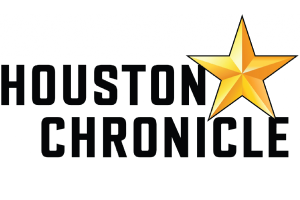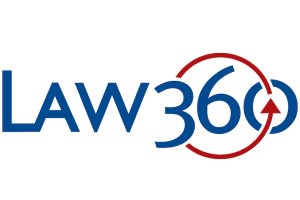- Free Consultation: 305-638-4143 Tap Here to Call Us
Three Dead, One Injured in Fiery Boca Raton Plane Crash Near I-95
On Friday, April 12, 2024, a small plane tragically crashed in Boca Raton, Florida, resulting in the deaths of three individuals on board and serious injuries to one person in a nearby vehicle. The Cessna 310, which had departed from Boca Raton Airport en route to Tallahassee, went down near Interstate 95 around 10:20 a.m., igniting a massive fireball and pushing a car onto adjacent railroad tracks. Eyewitnesses described a terrifying scene—trees catching fire, a fireball racing across the sky, and bystanders fleeing in panic.
The Federal Aviation Administration (FAA) and the National Transportation Safety Board (NTSB) have launched a full investigation into the cause of the crash. While aviation remains statistically one of the safest forms of travel, incidents like these serve as a reminder of how quickly lives can change and the complex legal aftermath that can follow.
Aviation Accidents in Florida
Florida is home to dozens of public and private airports and is one of the busiest states in the country for air traffic, especially small private and charter flights. From commercial planes to private jets, sightseeing tours, and training flights, Florida’s airspace is heavily trafficked—making aviation safety a major concern.
Below are some of the most common causes of aviation accidents that may lead to personal injury or wrongful death claims in Florida:
Pilot Error
Pilot error remains one of the leading causes of aviation accidents. These mistakes can range from misjudging weather conditions or altitude, to incorrect responses during in-flight emergencies, to failing to follow proper takeoff or landing procedures. Fatigue, distraction, inadequate training, and poor decision-making are all factors that can contribute to critical pilot errors.
Mechanical Failure
Defective aircraft parts or systems—whether due to faulty design, manufacturing flaws, or age—can cause systems to fail mid-flight. These may include engine failure, malfunctioning landing gear, or compromised flight control systems. Manufacturers, maintenance providers, or aircraft owners may be held liable if it is proven that defective equipment contributed to the crash.
Improper or Inadequate Maintenance
All aircraft require routine inspections and maintenance in accordance with Federal Aviation Administration (FAA) regulations. Failure to properly maintain or repair an aircraft can lead to serious mechanical issues and increase the likelihood of an accident. Liability in these cases may fall on maintenance companies, technicians, or aircraft owners.
Air Traffic Control Miscommunication
Air traffic controllers play a vital role in the safe coordination of aircraft. Miscommunication, delayed instructions, or failure to alert pilots to hazards such as other aircraft or adverse weather conditions can result in midair collisions, runway incidents, or navigation errors. These incidents may involve both human error and systemic issues in air traffic control operations.
Fuel Exhaustion or Mismanagement
Running out of fuel or improper fuel management is a surprisingly common factor in aviation accidents. This may be due to faulty fuel gauges, miscalculation by the pilot, or contamination in the fuel system. If the aircraft owner or operator failed to conduct proper preflight checks or monitor fuel consumption, they may be liable for resulting injuries or fatalities.
Bird Strikes or Wildlife Hazards
Bird strikes, particularly during takeoff or landing, can severely damage engines or windshields, leading to emergency situations. While some wildlife hazards are unavoidable, airports have a duty to implement mitigation measures. Failure to do so may expose them to liability, especially if there’s a documented history of similar incidents at the facility.
Severe Weather Conditions
Adverse weather such as thunderstorms, wind shear, turbulence, icing, or low visibility can present serious risks to aircraft. Although not all weather-related incidents are preventable, pilots and airline operators are expected to make prudent decisions about whether it is safe to fly. Failure to divert or cancel a flight in dangerous weather conditions may constitute negligence.
Violations of FAA Regulations
Any violation of FAA safety standards or federal aviation regulations—whether by a pilot, airline, maintenance provider, or manufacturer—can result in preventable accidents. These violations may include operating without proper licenses, ignoring weight limits, or failing to comply with inspection and safety directives.
Who Can Be Held Liable After an Aviation Accident?
When a plane crashes, the consequences are often devastating, not just for those on board but also for bystanders, motorists, or property owners on the ground. Aviation accidents are complex events that frequently involve multiple parties who may share responsibility. Identifying who is liable requires a thorough investigation into the cause of the crash — often involving federal agencies like the National Transportation Safety Board (NTSB) and the Federal Aviation Administration (FAA), as well as private investigators and legal teams.
Depending on the circumstances, the following parties may be held liable in a personal injury or wrongful death claim:
The Pilot or Flight Crew
Pilots have a duty to operate aircraft safely and in accordance with FAA regulations. If pilot error — such as misjudging weather, flying while fatigued, or making navigation mistakes — contributed to the crash, the pilot or their estate may be held responsible. In commercial or charter flights, the employer may also share liability under a theory of vicarious liability.
Aircraft Owner or Operator
The individual or company that owns or operates the aircraft is often responsible for ensuring the plane is in safe condition, appropriately maintained, and operated by qualified personnel. Under Florida law and federal aviation standards, aircraft operators can be held liable if they fail to meet these responsibilities, even if they were not piloting the aircraft themselves.
Maintenance Companies and Technicians
Aircraft maintenance is highly regulated and must meet stringent safety standards. If an outsourced maintenance contractor or technician failed to properly inspect, service, or repair a component that later malfunctioned, they may be held liable for resulting injuries or fatalities. Records of recent maintenance and repair work are crucial evidence in determining fault.
Aircraft and Component Manufacturers
If a mechanical failure or defective part caused or contributed to the crash, the manufacturer of the aircraft, engine, or specific part (such as avionics, fuel systems, or landing gear) may be responsible under product liability law. These claims often involve allegations of design defects, manufacturing defects, or failure to warn.
Air Traffic Control Authorities
Air traffic controllers are responsible for guiding aircraft safely during all phases of flight. If miscommunication, misinformation, or failure to issue timely warnings contributed to the accident, the air traffic control agency or its personnel may be held accountable. These cases may involve governmental immunity limitations and require specific procedures to file a claim against federal agencies.
Airport Authorities
In some cases, the condition of runways, lighting systems, or airport infrastructure may contribute to an accident — especially during takeoff or landing. Inadequate ground maintenance, lighting failures, or lack of emergency response may expose airport operators or municipal authorities to liability.
Charter or Commercial Aviation Companies
When a crash involves a privately chartered or commercial flight, the operating company may bear responsibility under Florida negligence laws or federal aviation regulations. Failure to properly vet pilots, maintain aircraft, or follow safety procedures may form the basis for legal claims.
Can Victims or Families Sue After a Plane Crash in Florida?
Yes. Victims and surviving family members may be entitled to pursue a personal injury or wrongful death claim under state and federal law.
Under the Florida Wrongful Death Act (Florida Statutes § 768.16–768.26), families may be able to recover compensation if they can prove that the fatal crash was caused by negligence—whether on the part of the pilot, aircraft maintenance crew, manufacturer, or other responsible parties.
Potential damages include:
- Medical bills and funeral expenses
- Loss of financial support and companionship
- Pain and suffering
- Loss of parental guidance (in cases involving children)
Victims who survive an aviation accident with serious injuries may also file personal injury claims for:
- Hospitalization and long-term care
- Permanent disability or disfigurement
- Lost income and diminished earning capacity
- Emotional distress and trauma
Because aircraft crashes often involve federal investigations and complex liability issues, it’s crucial to work with a law firm experienced in both Florida personal injury law and aviation litigation.
Investigating Aviation Accidents: The Role of the NTSB and FAA
In most cases, the NTSB leads the investigation of aviation accidents, with support from the FAA. These agencies will:
- Inspect the crash site
- Recover flight data recorders (black boxes)
- Interview witnesses
- Examine maintenance logs and pilot certifications
- Analyze wreckage for signs of mechanical failure
In the Boca Raton case, the NTSB has already begun collecting evidence and will issue a preliminary report within 30 days, followed by a full investigation that may take up to 24 months to complete.
While these agencies determine the cause, they do not provide compensation to victims. That responsibility lies within the civil court system through personal injury or wrongful death claims.
Miami Aviation Accident Attorneys
At Flanagan & Bodenheimer Injury & Wrongful Death Law Firm, we have extensive experience handling complex aviation-related personal injury and wrongful death cases throughout Florida. While each case is unique, we understand the legal challenges that can arise when aviation accidents occur—whether involving private planes, charter flights, or commercial aircraft. Our team is prepared to navigate the intricacies of these claims with skill and compassion, helping clients seek justice and accountability when negligence is involved. If you or someone you love has been affected by an aviation accident in Florida, we are here to provide legal guidance and support tailored to your situation.












